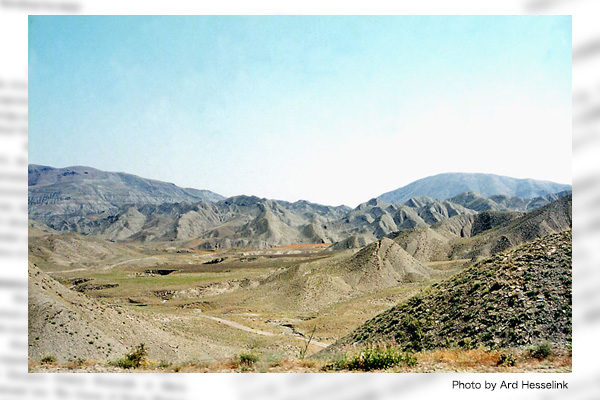Afghanistan has massive underground mineral resources. As the U.S. Biden administration has prematurely withdrawn U.S. forces from Afghanistan and allowed the Islamic fundamentalist Taliban group to take control of the country, China may get those mineral resources as windfall benefits.
Rare earths also found
A team led by Jack Medlin of the U.S. Geological Survey conducted a search for mineral resources in Afghanistan in 2011. The team used documents compiled during the Soviet occupation of Afghanistan, special aircraft for collecting three-dimensional information on bedrocks up to 10 kilometers underground, and earth resources exploration satellites to select promising locations for on-site survey. The team went to each of locations aboard helicopters and left there within one hour before rebels’ arrival. As a result, the team identified massive deposits of gold, copper, iron ore, lithium, uranium and other minerals at seven locations. Deposits in southern Afghanistan controlled long by the Taliban could trigger a gold rush, said Medlin.
The USGS team also discovered massive deposits of rubidium and other rare earths that are indispensable for high-tech and renewable energy industries, estimating rare earth deposits in the southern province of Helmand at 1 million tons or more. Further surveys are expected to boost estimated deposits two to three times. Deposits of rare earth and other mineral resources are valued at more than $1 trillion, including lithium and copper for which demand will explosively increase for electric vehicles and renewable energy power generation, storage and transmission. Among rare earth resources, rubidium is required for permanent magnets for powerful motors and power generators.
China has tried to develop its relationship with the Taliban even since before the takeover of Kabul, Afghan capital. China may be planning to explore and acquire mineral resources in Afghanistan under its Belt and Road Initiative (BRI) to expand its scope of influence after the country becomes politically stable. An absolute condition for China’s support for the Taliban is the group’s secession of ties with radical Uyghurs who may be seeking to win the Xinjian Uyghur autonomous region’s separation and independence from China. If the Taliban keeps its promise not to support radical Uyghurs and puts its relationship with China into orbit, China would get double benefits – the acquisition of key mineral resources and the containment of radical Uyghurs.
U.S. withdrawal could benefit BRI
The construction of the China-Pakistan Economic Corridor between Kashgar in the Xinjiang Uyghur autonomous region and Gwadar Port in southwestern Pakistan is one of the biggest projects under the Chinese BRI. Afghanistan’s stabilization would contribute to protecting BRI projects in Pakistan and central Asia from attacks by extremist Muslims and promoting the BRI. China may be more farsighted than the Biden administration.
The Biden administration has justified U.S. withdrawal from Afghanistan as a measure to concentrate U.S. military resources on a strategically important rivalry with China. If its premature departure of U.S. forces from Afghanistan benefits China, it would be the greatest irony.
Tadashi Narabayashi is a specially appointed professor at the Tokyo Institute of Technology and a director at the Japan Institute for National Fundamentals.


